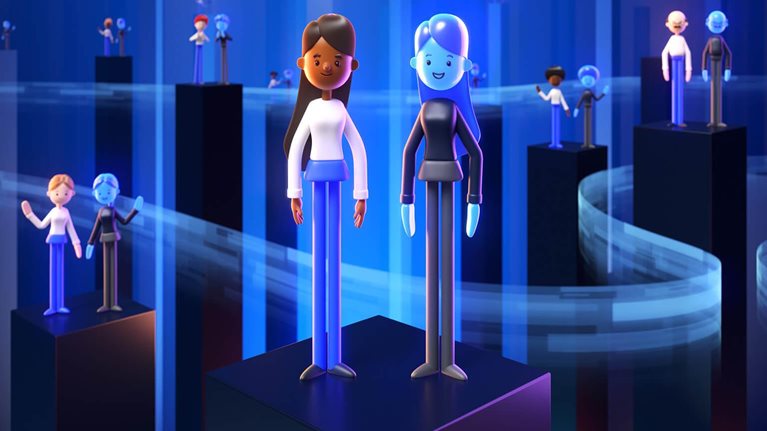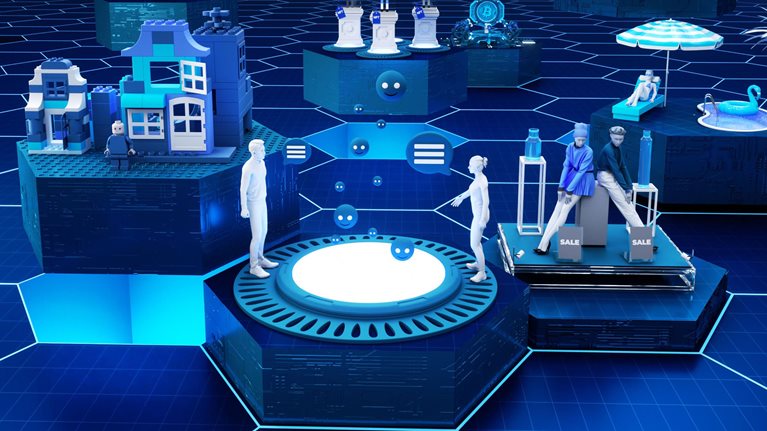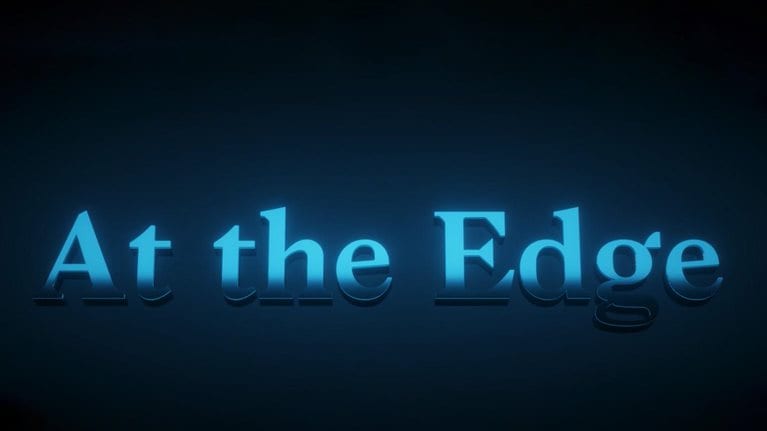How would you define the metaverse?
I don’t really use the word “metaverse,” because everyone has a different definition. I feel people are coming from different perspectives and have their own ideas for what the future will look like. If we codify our own definition, it will limit what we can do.
We’re more interested in the new kinds of user interactions online, and the new kinds of user communities coming together in the metaverse. We’ve been involved in the user interactions and the user communities’ engagement in the virtual space for a long time through our online games, such as Final Fantasy XI, Final Fantasy XIV, and Dragon Quest X.
We understand that user interactions and the user community are very important aspects of the game experience. Emerging technologies such as virtual reality (VR) and blockchain will introduce new elements, so we think of the metaverse as the evolution of user interactions and the user community.
What excites you the most about the future of decentralized or blockchain games?
Most of our games, especially their worlds, are fully organized by our creators for people to play in. Having a virtual experience where you play in these worlds is what we think of as an online game and is what I believe most people think of as the metaverse.
But blockchain games are an interesting new development with some novel ideas, such as tokens being used to create and incentivize new movement within a community. For example, a company that makes maps gives tokens to users and then collects map data to develop a digital map.
I think this could be an incredibly effective way to not only provide users with new excitement but also to solve societal problems. For example, a company in Japan recently decided to crowdsource manhole maintenance. They asked users in particular regions to identify manholes that were beginning to deteriorate, submit pictures to the company’s central database for maintenance teams, and gamified the experience via competitions and points.
Maybe that’s what games will become in this new era. Although we’ve traditionally provided users with games only in a completed state, the token economy would allow users to play autonomously in a range of new ways.
Some people might question whether that’s really a game. But I think more and more people are going to be enjoying game-like elements, even if they aren’t really classified as games in the traditional sense. And I think that could be one way for games to move forward.
Historically, we and other gaming companies provided completed experiences, but everything we’re observing makes us think that may be starting to change.

Metaverse Talks
How do you see the metaverse impacting the human experience beyond gaming?
It is not just about the metaverse, because as I mentioned, tokens are also an incentive. Gamification can be used to give everyone a sense of purpose and contribute to societal improvements. Gamifying manhole maintenance gets participants to work together to solve a societal problem. It’s the creation of a community, and that’s what gamification is all about.
I’m really interested in finding ways to encourage people to take part in something and providing the right incentives to get it done. I think giving users the ability to create things could conceivably result in new kinds of games, which is obviously the opposite of what we and other game companies have created until now. But even if a gaming company loses that business, it could manage the game servers with tokens.
As you can see in games like Roblox and Minecraft, the content developed by users is becoming critical parts of the overall experience. Users are already a part of game development. Even in the other industries, I think it’s becoming increasingly difficult to offer services without involving the customer community in their development.
The value is shifting toward the user community. The model of a single company offering every conceivable service is crumbling. Any companies offering consumer services may need to think about accommodating such changes by introducing mechanisms to involve and reward the customer community. The metaverse and blockchain could be great tools to realize this goal.
What are the roadblocks to large-scale consumer adoption of the metaverse?
This isn’t limited to the metaverse, since most people tend to be conservative about disruptive new technologies in general. As with blockchain, we see a huge amount of skepticism, and even resistance. The industry is split in two between those who embrace it passionately and those who caution against it, which I see even within our company. So I’ve needed to create a separate division to tackle these new opportunities independent from the existing game development organizations.
But as the next generation—young people who’ve been exposed to this technology and find it normal—assume leadership of society, this perception will naturally change. So I think this is a problem that time will solve.
We saw similar a divide in the game industry when free to play (F2P) games were introduced about 10 years ago. Now, F2P accounts for the majority of games. I think the industry is at a similar point as when Kaito Royal was first introduced and became one of the first successful F2P games.
There are people who say the metaverse isn’t business, or that it’s just gaming, or that it should be this way or that way, across many industries. But I feel when the generation that grows up with it as the norm starts to make more of these decisions, it will become even more mainstream. And I think companies have an opportunity to try and stay ahead of this coming revolution.


